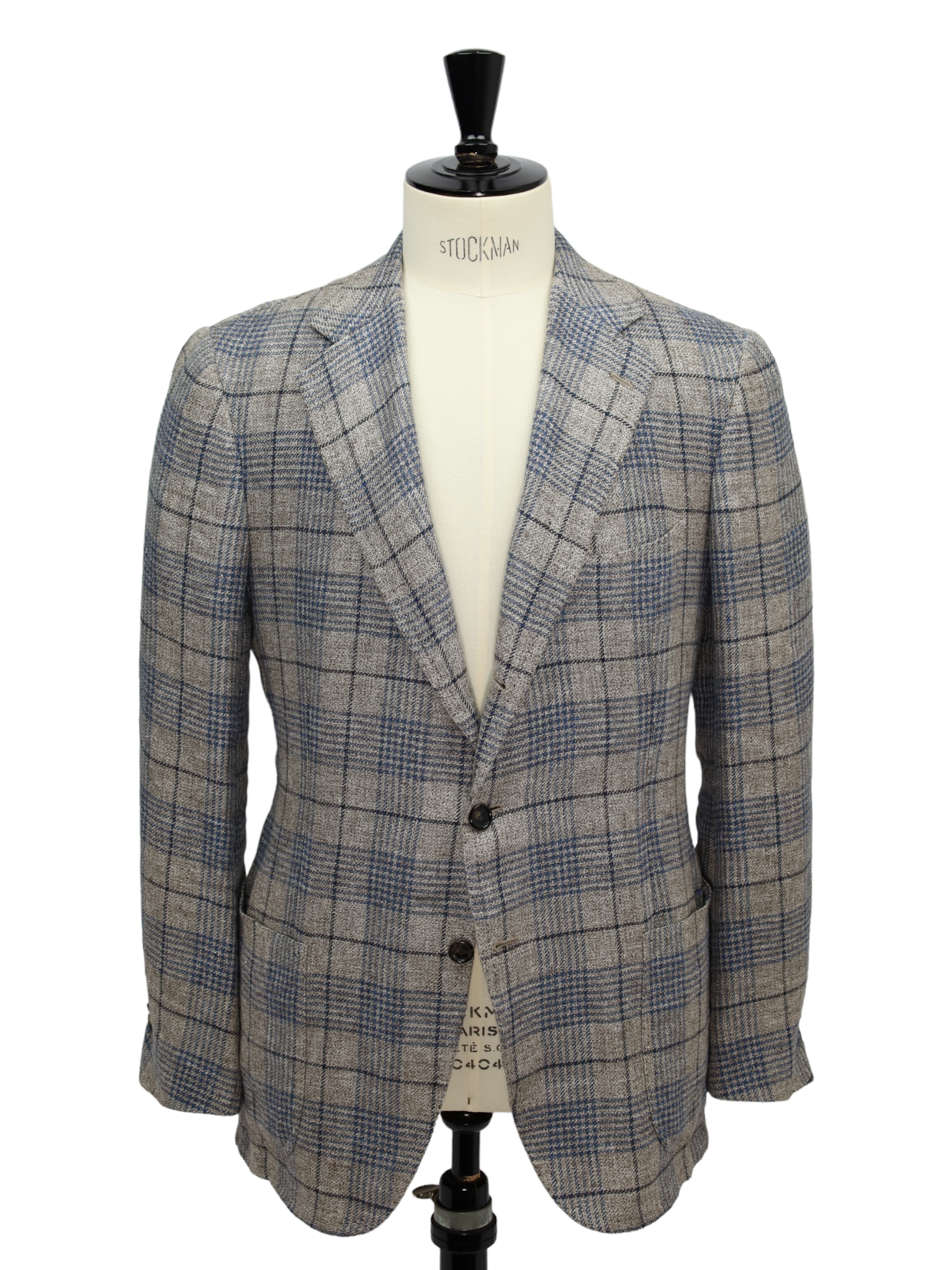
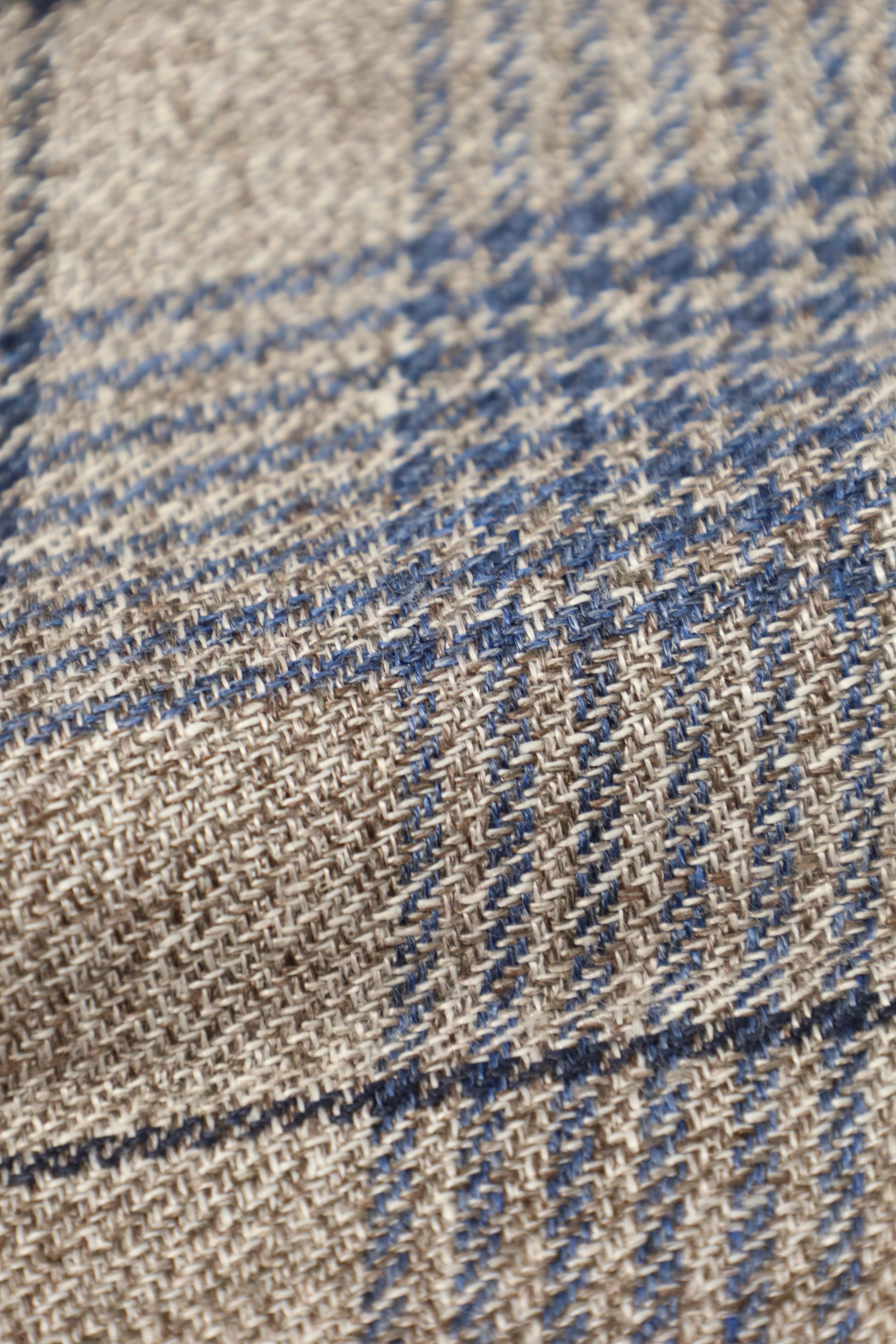
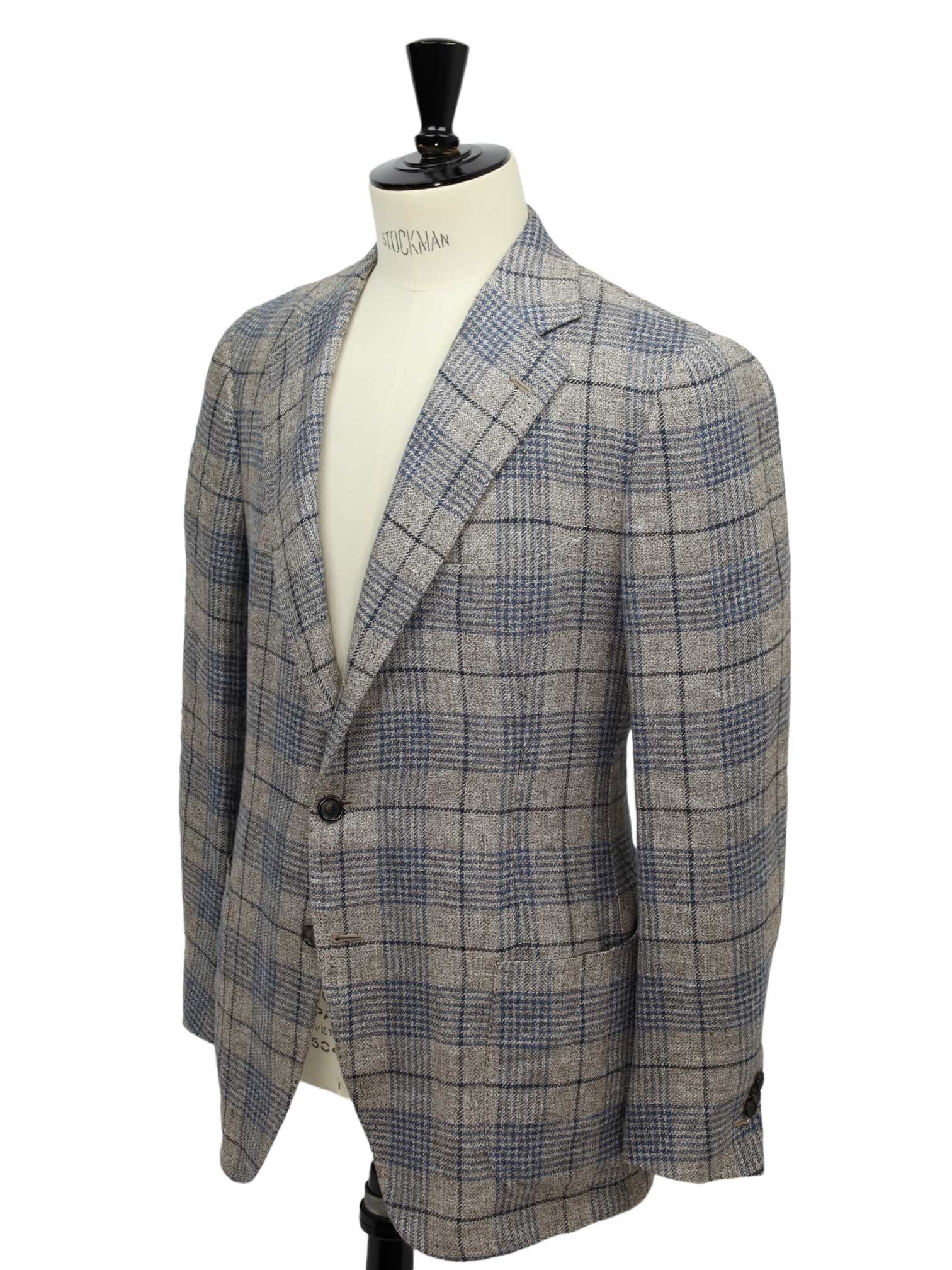
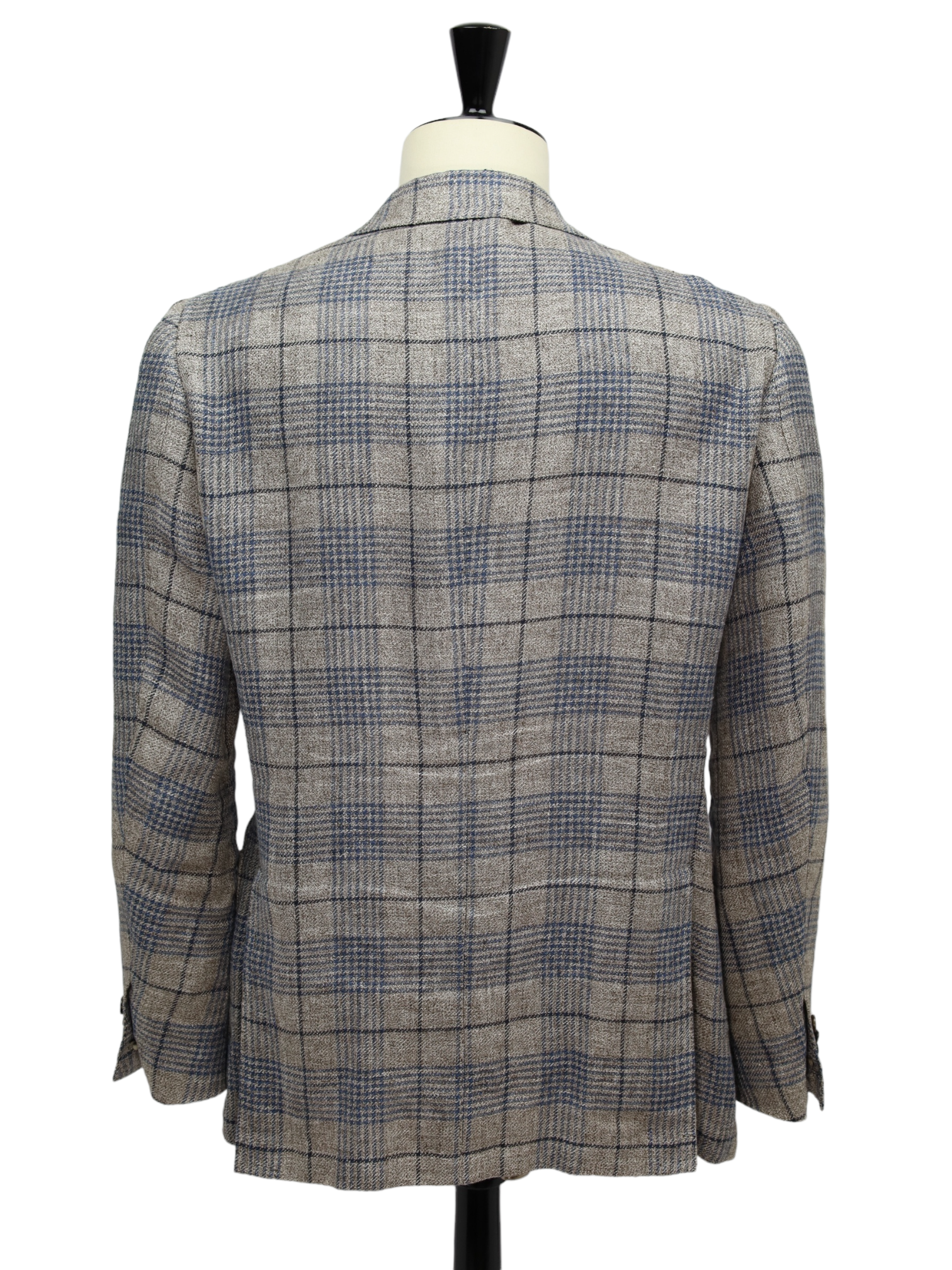
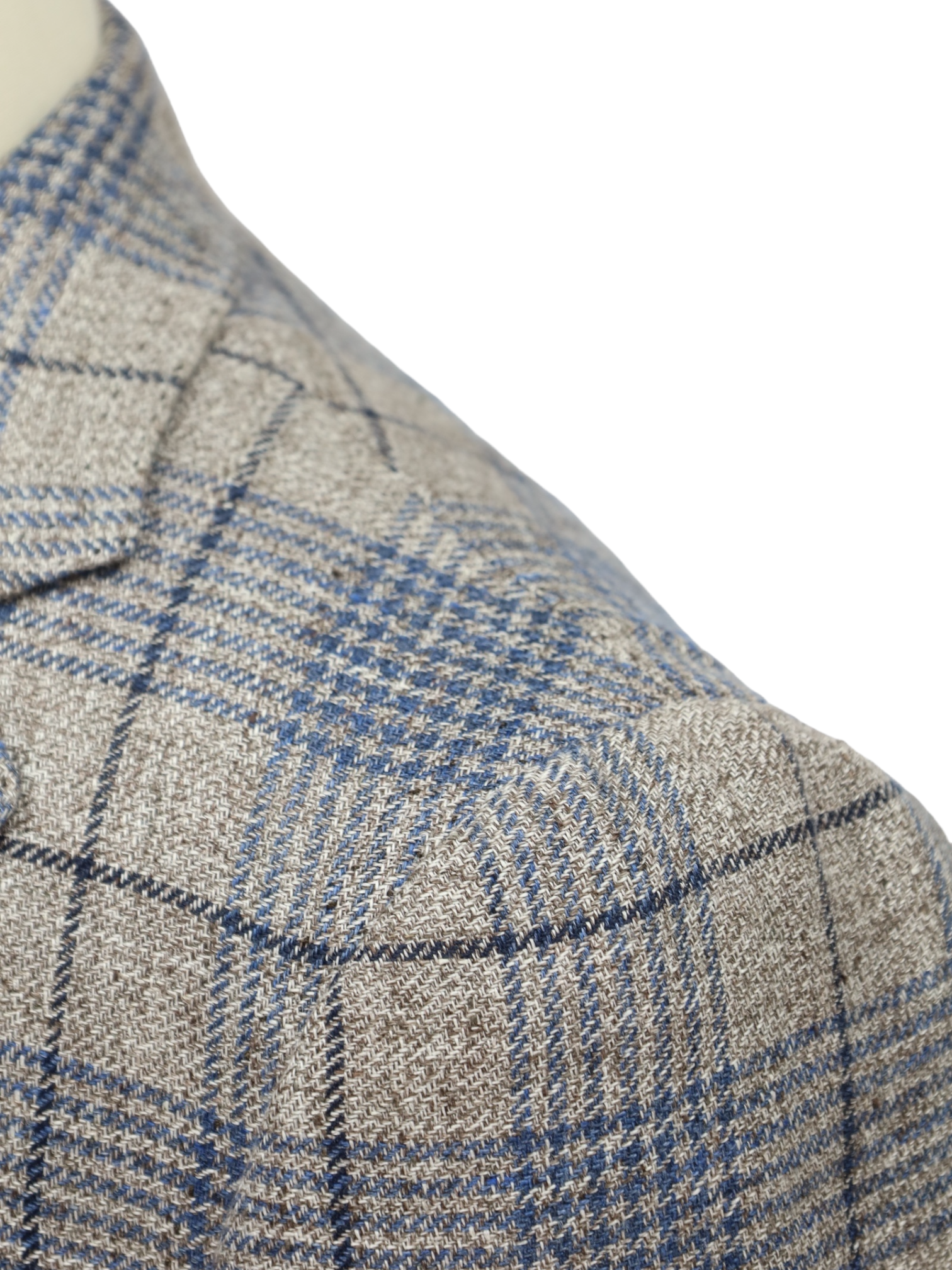
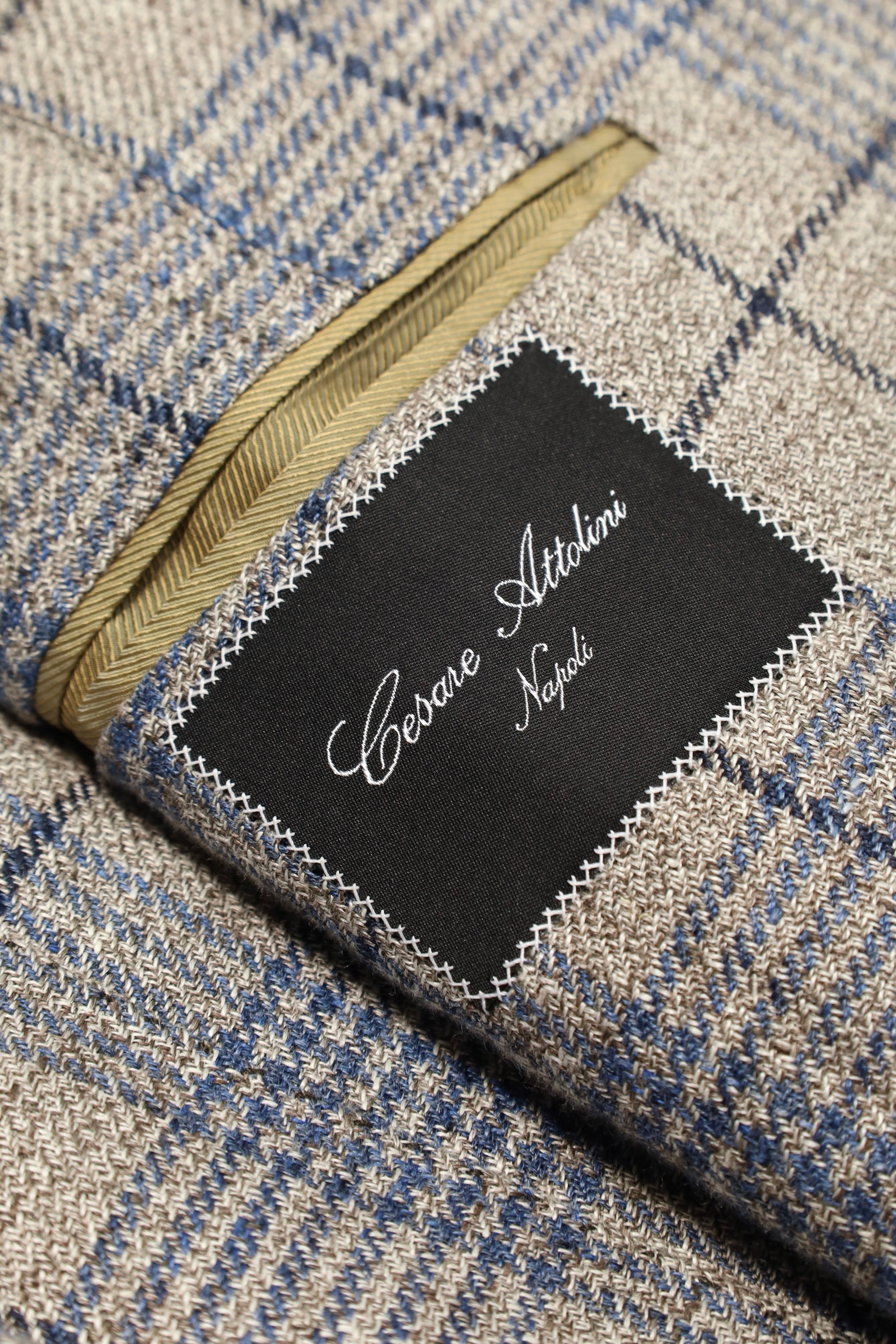
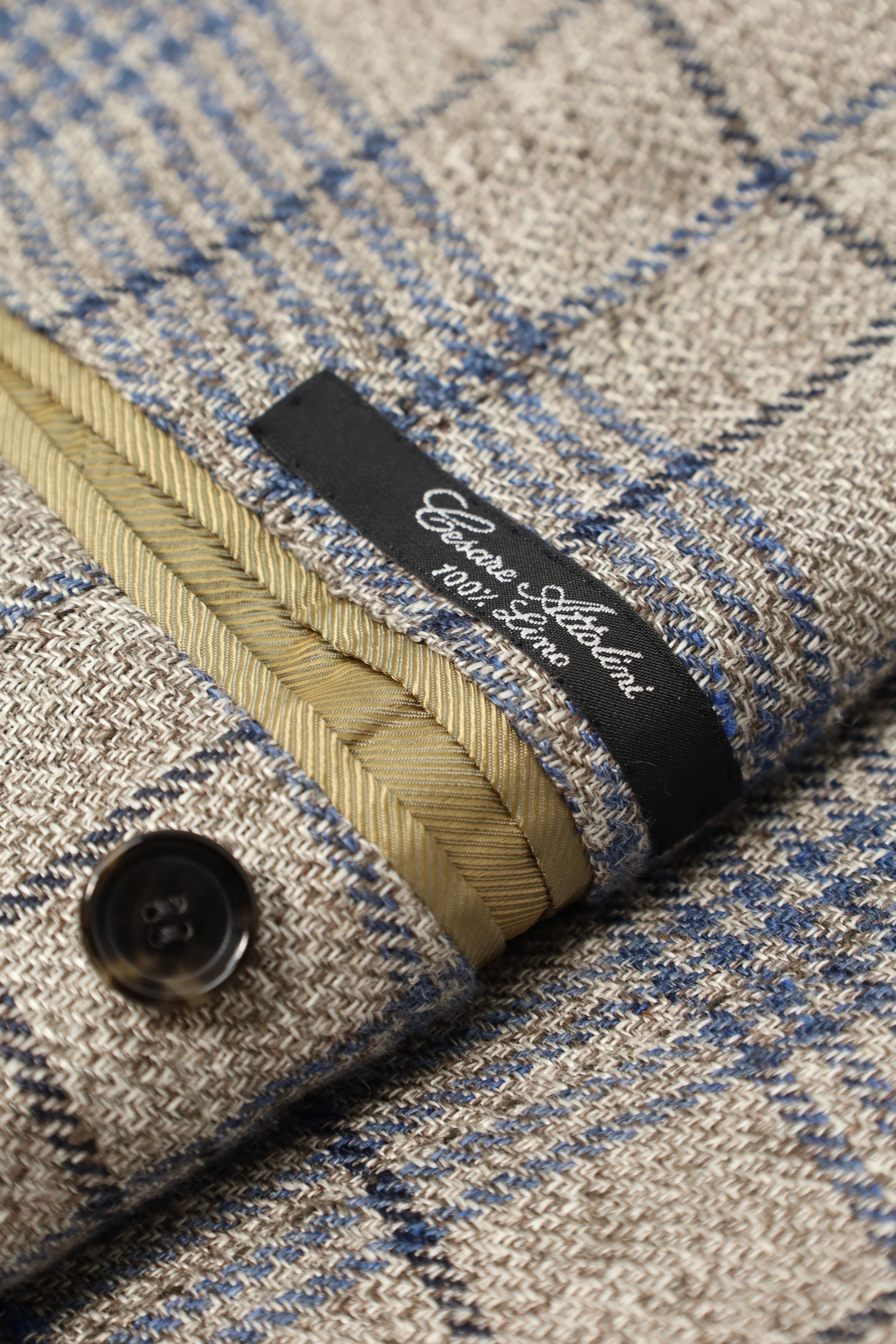
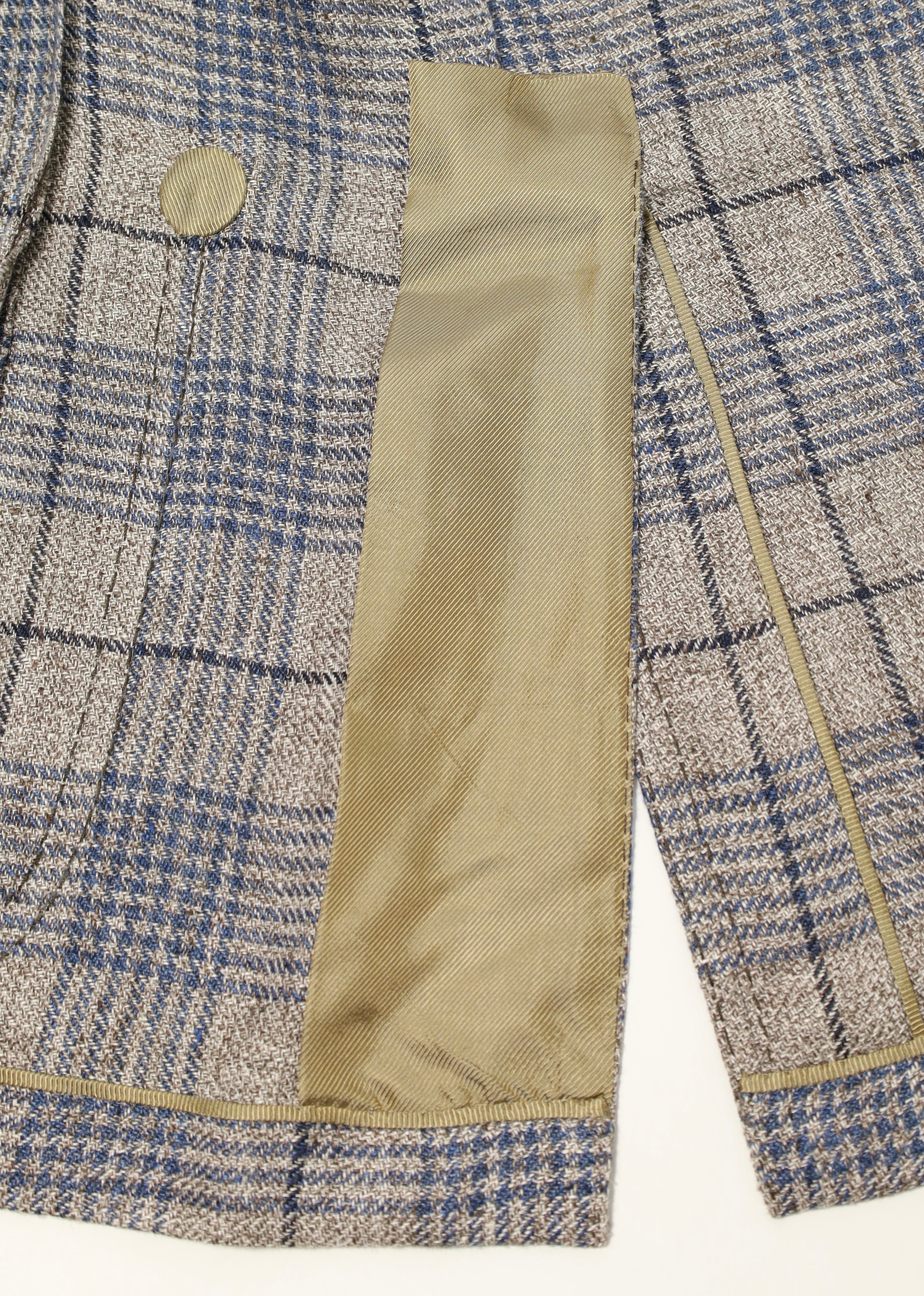
Cesare Attolini Taupe Windowpane Linen Blazer
54 IT / 44 US / Extra Large
Unlined Neapolitan jacket crafted from taupe linen, with notch lapels, patch pockets, doppio impuntura double pick-stitching and 2.5-button closure and buttonhole at the end of the sleeve. Discover the elaborated sartorial details below.
Each Cesare Attolini garment is made entirely by hand in the Casalnuovo tailor’s shop, on the outskirts of Naples. It takes 25 to 30 hours to make a suit. 130 tailors work every day, each dedicated to performing a single step. Absolute perfectionism. What makes each Cesare Attolini jacket unique are those little handcrafted details fine-tuned over the decades by Vincenzo Attolini, needless to say, designer and creator of the first unstructured Neapolitan-style jacket, and perfected by his son Cesare.
Composition: 100% Linen
Color: Taupe
Pattern: Prince of Wales Check
See how we measure our sartorial items
Discover the customization possibilities by visiting our tailor alteration guide
Shipping
• Complimentary shipping on orders over €200 (Netherlands), €500 (EU), and €1,000 (rest of world
• Orders below these thresholds are charged based on destination
• All items ship directly from Amsterdam, The Netherlands
• Customs duties and import fees outside the EU are the customer’s responsibility
Returns
EU customers have the right to withdraw within 14 days of delivery.
• Return shipping is at the customer’s expense
• Items must be returned unworn and in original condition
• Any use beyond indoor fitting may result in a diminished refund
Orders outside the European Union are exported goods and considered final sale (no returns).
Altered or tailored items are final sale.
Please review measurements and quality control comments carefully before ordering. As a small independent boutique we encourage thoughtful purchasing. For any questions, feel free to contact us before placing your order.
General Note: While we inspect each item to ensure its quality, please note that minor imperfections may be present due to the preloved nature of the garments. We strive to represent every item accurately, but subtle signs of wear may sometimes go unnoticed. We appreciate your understanding and commitment to sustainable luxury.
Choose options








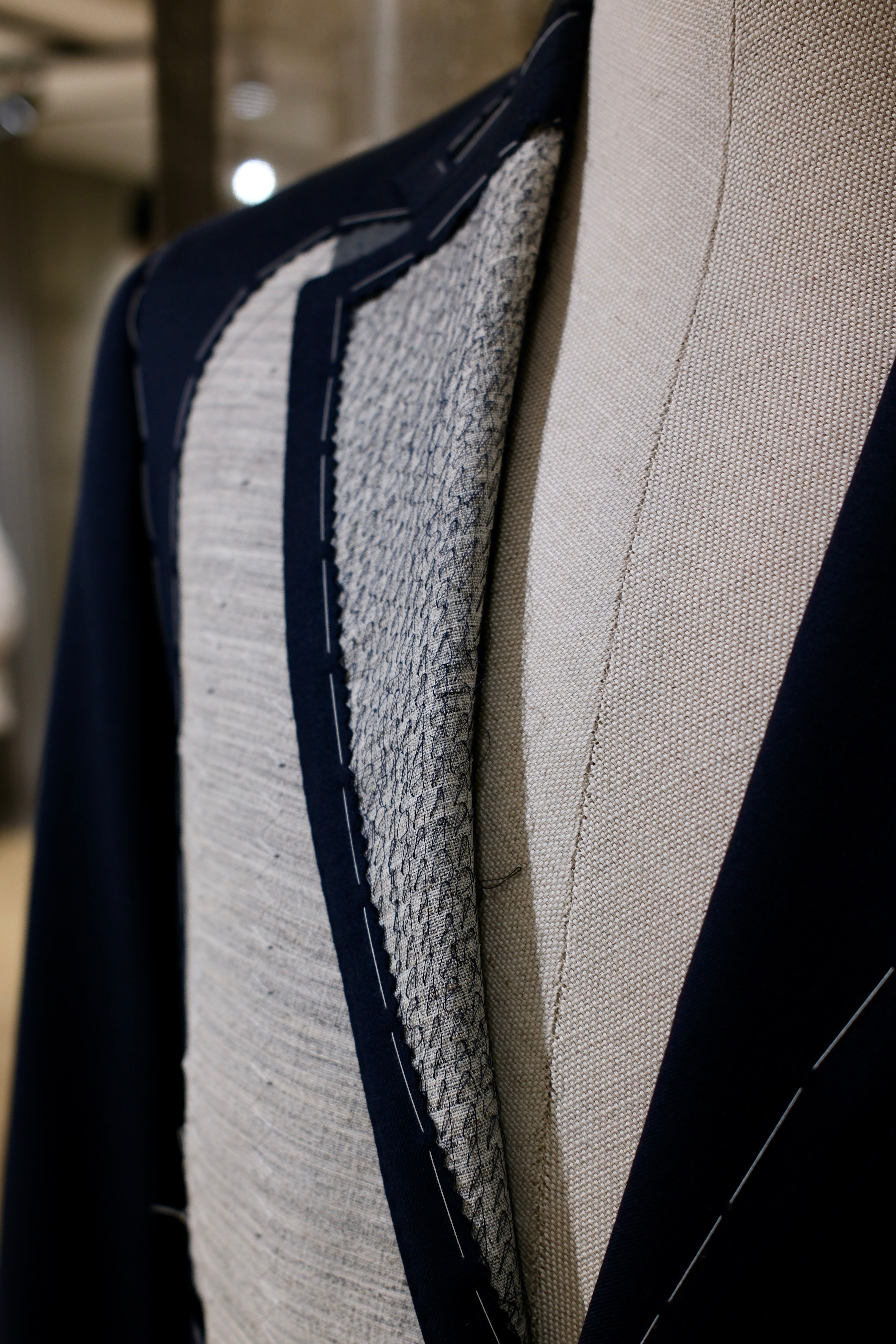
Discover the
Sartorial Details

Full Canvas Construction
A sartorial jacket - or coat - needs an interlining that will help give it shape and mold it. Canvas gives the item a tailored and crafted look. In short, it breathes life into it. Purely technical, canvas is made from either horsehair, wool, mohair or camel hair. It could also be a mix of them all, with varying thickness and weight. The canvas is stitched to the jacket, often by hand, thus making the canvas pieces 'floating' in the middle of the inner and outer cloth. This gives the jacket added flexibility. The canvas runs from the upper parts, all the way down to the end of the jacket. After you wear your canvassed suit for a while, it will begin to take your shape and look incredibly natural.

La Spalla Camicia
Spalla Camicia roughly translates to 'shirt sleeve' in Italian and is a shoulder style created and popularized by Neapolitan tailors. The name 'shirt sleeve' was so coined due to the characteristic shirring found at the sleeve's head where the fullness of the larger sleeve collapses. Rather than having the head of the sleeve turned back and stitched inside, the head is lapped under and stitched along the top.
Neapolitan Buttonhole
The buttonhole preferred by tailors in Naples, Italy. The Neapolitan is a slightly shorter and thicker style of handmade buttonhole. It has a distinct opening at the end, which opens wider than any other buttonhole.
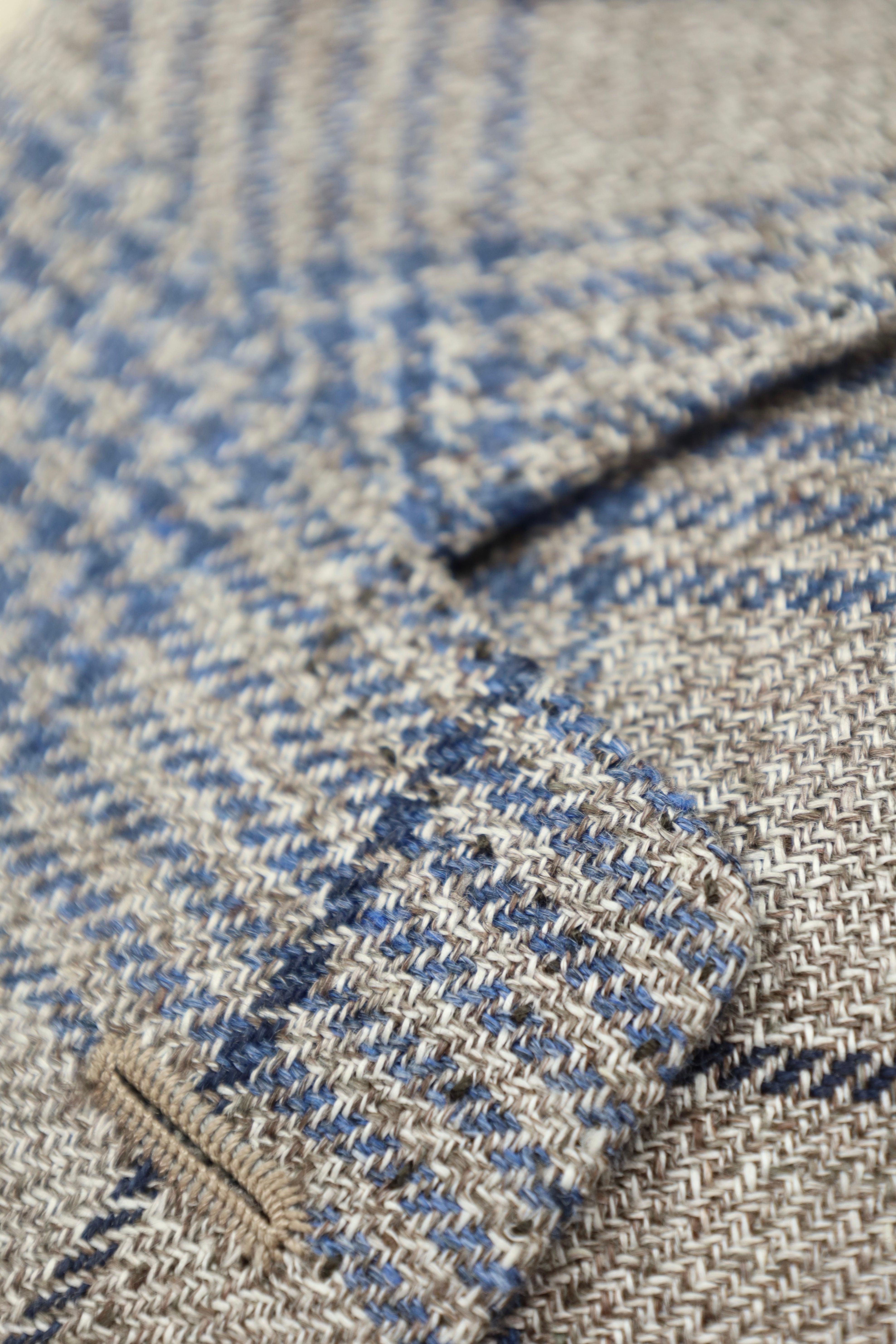
Pick stitching - doppio impuntura
The doppio impuntura or ‘double pick stitching’. It is made as a backstitch, which is a highly time consuming process that looks like a little dot on the surface of the fabric. The doppio impuntura runs throughout the sides of the lapel, collar, pockets and shoulder seam. As a visible detail of handwork, it can be seen as the ultimate touch of elegance.
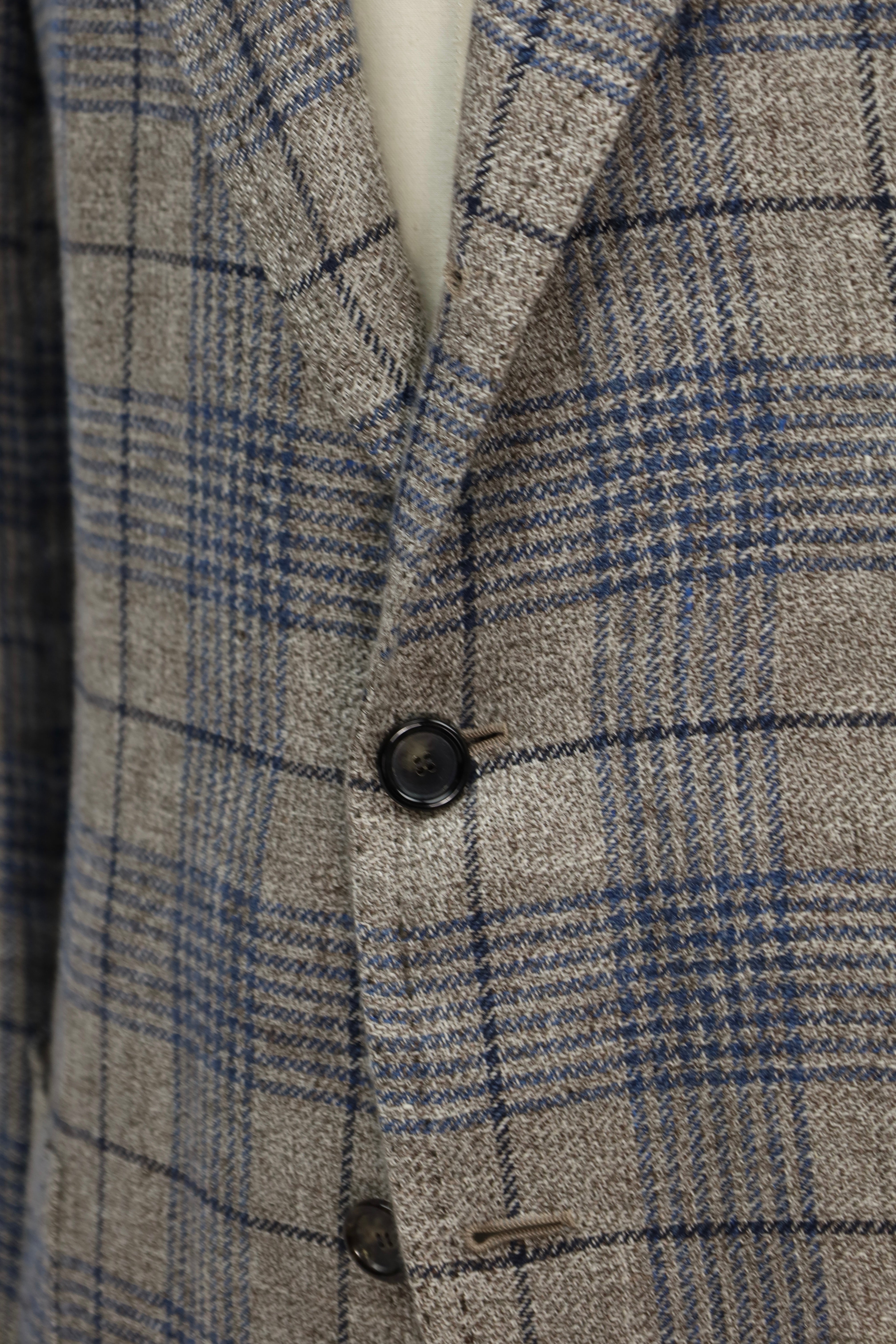
2.5 Button Closure
The ‘tre bottoni stirato a due’, also known as the three rolling on two lapel style, is perhaps the most infamous characteristic of the Neapolitan style jacket. The top button and buttonhole are ornamental, so are left unbuttoned. As the lapel rolls down it elegantly folds over the top button and stops just 4 cm above the second button creating the distinct roll of the lapel the style is known for. As it is intended to remain unbuttoned, the top buttonhole is actually made inside out so the beautiful side will still be visible.
Barchetta Chest Pocket
The barchetta pocket is often thought to be a tailoring detail exclusively from Italy. The word “barchetta” is Italian for “little boat.” It describes how the pocket floats on the chest, gently angled upwards, like the bow of a sailboat.
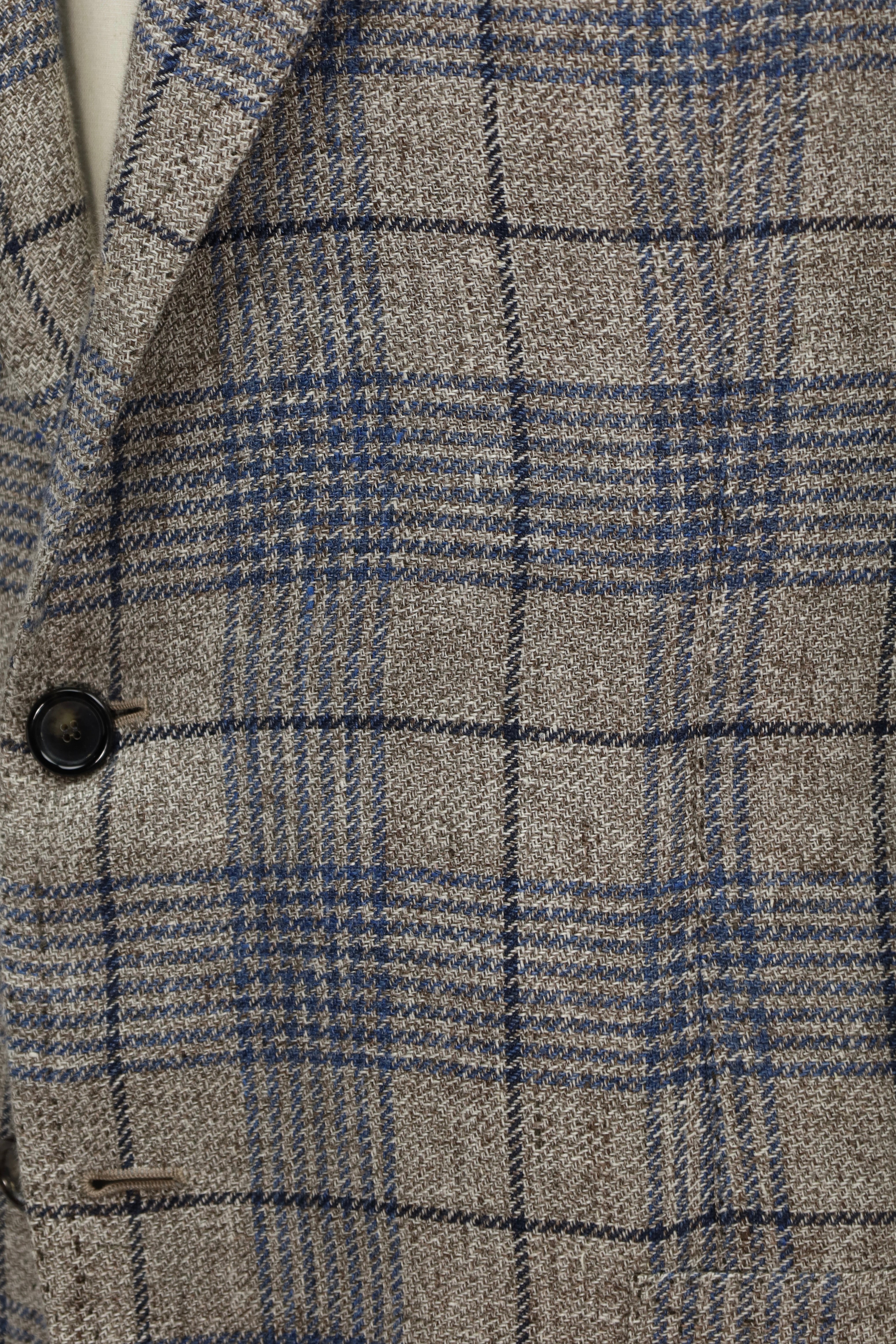
Neapolitan Darts
Neapolitan master tailors add two darts - think of them as pinched seams - to ensure the jacket’s body achieves a slim silhouette. The process, called mezzo punto riprese, is done entirely by hand.
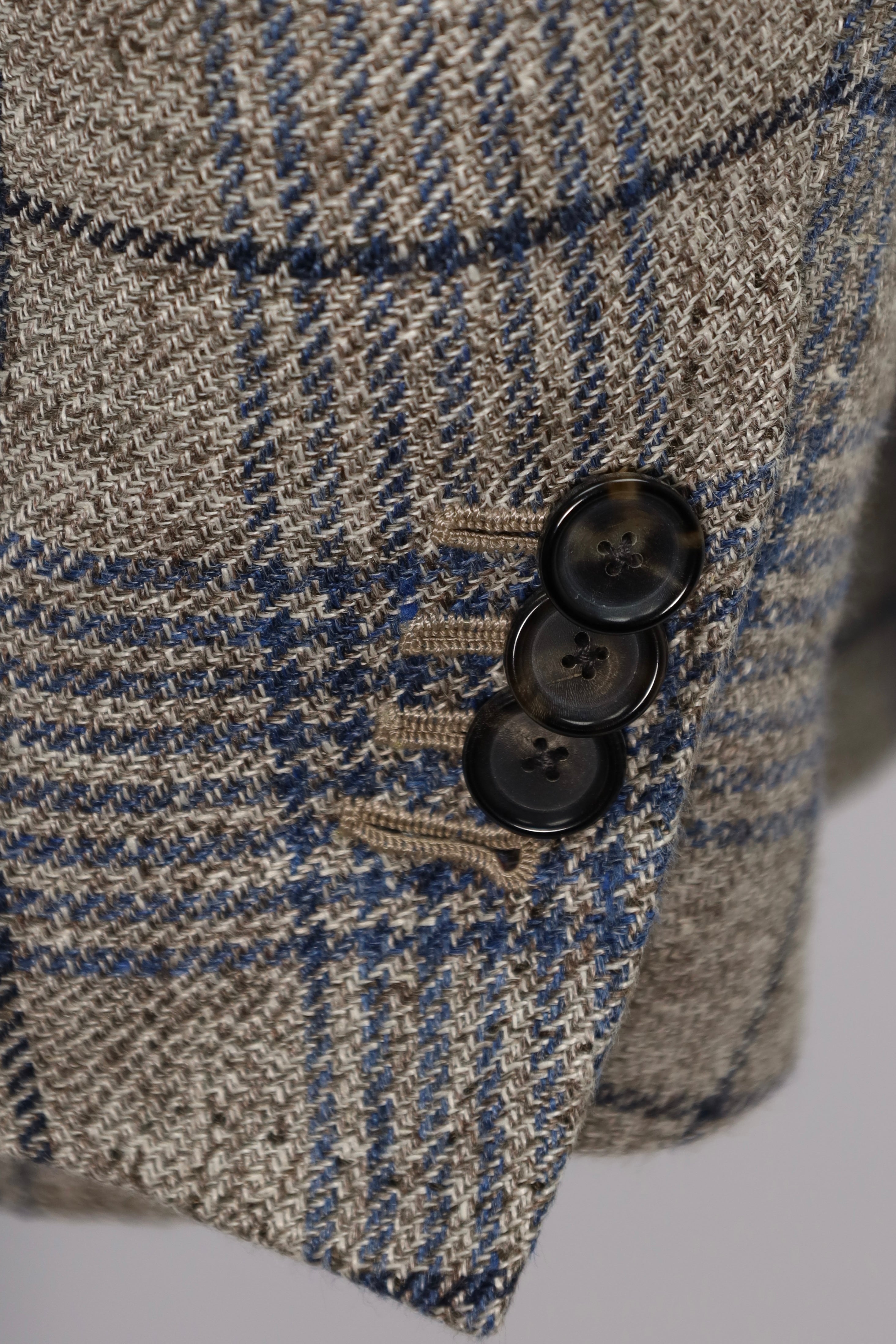
Kissing Buttons and Handmade Buttonholes
Also known as stacked buttons or waterfall buttons, kissing buttons are associated with Italian tailoring as Italian tailors make their jacket sleeve buttons in the kissing style. In this style, buttons touch each other and overlap one another. Handmade buttonholes; Even this step, apparently the simplest, is treated with an abundance of detail. Attaching the buttons is a job that requires patience and must be completed to perfection.
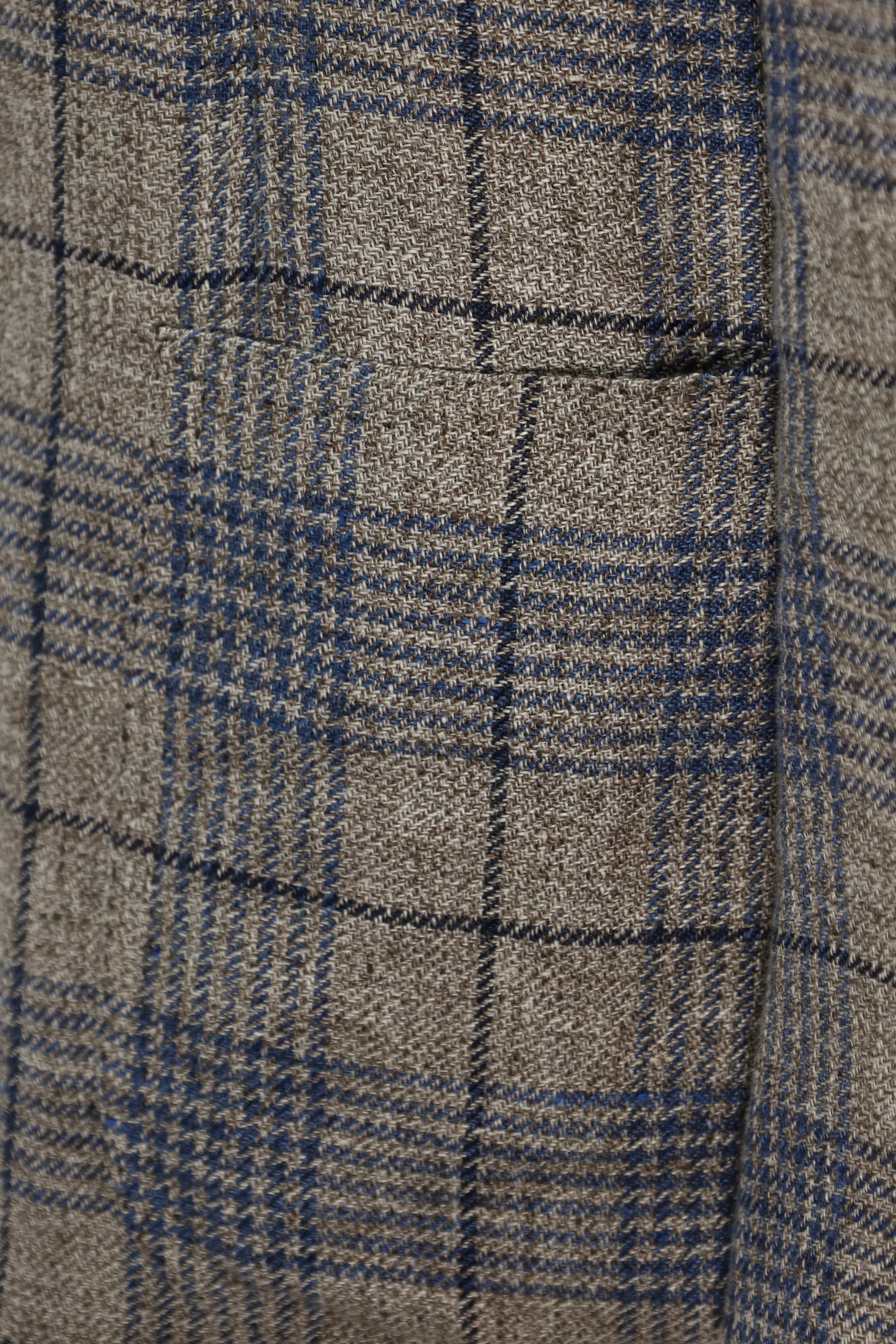
Tasca a Pignata Patch Pocket
Patch pockets, with their rugged functionality, were unsurprisingly adopted by the military for both shirts and jackets. The lower patch pockets on a Neapolitan jacket are modeled after the tasca a pignata style, and when done in its purest form, are easily recognizable with a rounded-bottom and a unique shape


size
54 IT / 44 US / Extra Large


 Curator's Description
Curator's Description Materials
Materials